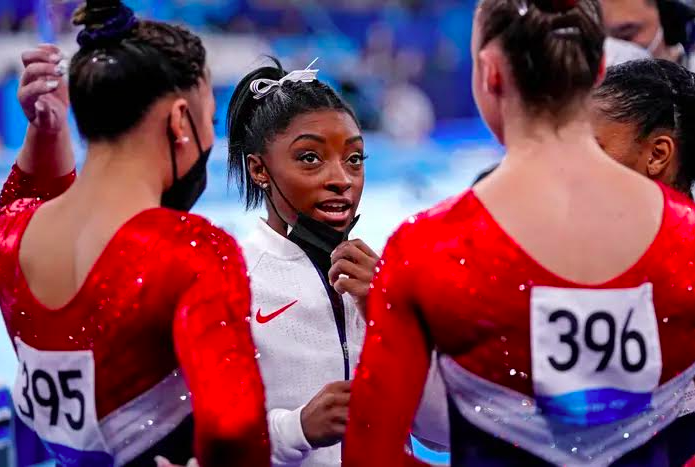This past week we saw something that years ago would have been unimaginable – the best in the world stepped back from a competition, and not just any competition but the Olympics.

The Olympics are a cultural and sports phenomena that enthrall, inspire and have the possibility to unite the world watching. It was under these expectations and circumstances that American gymnast Simone Biles, who has a combined total of 31 Olympic and World Championship medals and is considered one of the greatest and most dominant gymnasts of all time, took the courageous step to take care of herself and her mental health. The aftermath of her decision was met with tremendous support from many, disbelief from some and unfortunately misguided comments from talking heads and social media trolls. Simone Biles did something brave and courageous, she exercised boundaries and practiced the highest level of self-care and this is an example I believe we can all learn from and apply in our own life. I want to explore the most common limiting beliefs that prevent most of us from practicing self-care and boundary reframes to help us embrace them and ultimately better understand the empowerment that comes from doing so.
When I work with my clients and teams around self-care and boundaries I like to lead with the following: “taking care of yourself isn’t selfish, expecting others to is,” as this is the biggest limiting belief that prevents many of us from practicing self-care in the first place – the fear of being seen as selfish. We know what to do, we know we need to say “no” or take a break but we don’t follow through out of fear of being seen as “selfish”. This cannot be further from the truth. When you take care of yourself, when you act out of intention and not a false sense of obligation, you perform and show up better. You get to be the best version of yourself not an exhausted, sometimes even resentful, and stressed-out version running off of fumes.
Another limiting belief that comes up a lot when people don’t exercise boundaries and self-care is “but I did ‘this’ before” or “I did ‘this’ for so and so” as if we create unbreakable precedents that keep us stuck in doing things that no longer serve us or prevents us from changing our minds after listening to our emotional or physical needs. I fully believe that when Simone Biles committed to the US Olympic Team she fully intended on participating in all the Olympic events that she qualified for but things changed and she acted accordingly. A reframe around this that I use with my clients is to see boundaries as drawbridges and not as walls and you are in control of putting the drawbridge up or down as you see fit. Just because you say “yes” one time does not mean it’s always a yes and the same goes for “no.” The more we exercise the practice of tuning in and asking ourselves what we really want and following the answer, the easier it gets. I like to think of it as a muscle that the more we flex it and use it properly the stronger it gets.
Practicing boundaries is one of the most empowering things you can do for yourself and others because boundaries go both ways. Not using boundaries can cause dissatisfaction and burnout. It can also lead to resentment—so using boundaries is not only good for you, it’s good for your relationships both personal and professional. When we practice good boundaries with ourselves and others it’s important to remember the following, you need to be able to say “no”. My advice is to be clear when saying no – clear is kind, unclear is unkind. People can respect a definitive ‘no’ even if they had hoped it would be a yes. When we are unclear and give excuses or don’t give an answer at all, it’s hard for people to react appropriately and can lead to them feeling misled and ultimately let down, which was probably what you were trying to avoid in the first place. This also means that we have to learn how to accept “no” from other people—they need to exercise boundaries too, even if their boundary does not allow what you had hoped for. By setting a good example in both accepting and exercising boundaries, you are providing a template by which others can set appropriate behaviour.
The thing with boundaries is that they are never easy but with practice and commitment to the work of establishing them, we can live a life from a place of intention and empowerment.
We are all familiar with the expression that you can’t pour from an empty cup. This is true but I want you to only pour from your cup as a last resort – I want you to overflow and fill the cups of others around you without sacrificing your fill. Simone Biles does not owe us filled cups from her depleted cup, when and if she feels ready we may be lucky enough to watch her overflow manifest into another spectacular performance but for now, I am sitting here on the sidelines applauding as hard as I would as if she had just landed an incredible gymnastic feat because she did something even greater – she exercised boundaries, taking care of herself and I believe will inspire others to do the same.


